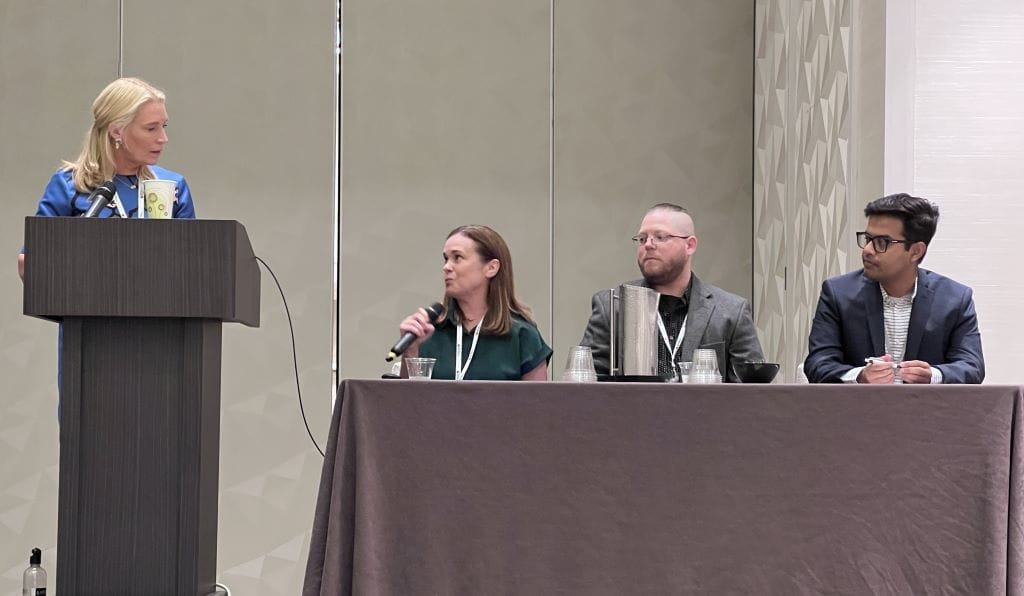Texas Working with NTIA to Address Legislation that Limits Municipal Broadband, as States Tout P3s
Public-private partnerships have seen success in several states, officials said.
Teralyn Whipple

DENVER, Colorado, August 9, 2023 – Texas is working with the National Telecommunications and Information Administration to address legislation that limits municipal broadband networks in its state, said the the state’s broadband outreach coordinator Wednesday, as state officials say they see demand for and success with public-private partnership builds.
Although municipal networks are not expressly prohibited, grant programs must prioritize internet service provider projects above any non-commercial application, said Andrea Pacheco, the outreach coordinator of the Broadband Development Office.
Texas’s broadband office is looking to the NTIA for guidance on how to address the challenges the legislation creates, Pacheco added, calling the limitation “problematic” and saying stakeholders want P3s. A P3 broadband build involves a partnership in which the municipality or county owns the infrastructure and a private company operates it, said Pacheco.
Texas is one of 22 states that currently restrict or prohibit municipalities from building or operating broadband networks.
P3s have been a great success in Idaho, said Ramon Hobdey-Sanchez, Idaho’s broadband development manager. The Idaho Department of Transportation spearheaded PPPs in the state and engaged multiple cities and counties, he said.
Idaho P3 projects have seen great return on investment and high speed of completion, Hobdey-Sanchez continued. The state has not taken a position on whether the private or public sector should own the infrastructure, but Hobdey-Sanchez said that he hopes that the state can encourage collaboration and find a happy medium.
Arizona’s State Broadband Director Sandip Bhowmick said that P3s are popular in Arizona as well. He added that states and municipalities should and can reach out to the state broadband office to help with the permitting process.
The P3 model has been touted as the “most effective way” to bridge the digital divide by industry experts. The model blends public with private funds and the localized expertise of community leaders, supporters claim.
Also important to successful BEAD implementation is outreach coordination, agreed state broadband leaders.
Texas has established six outcome-specific broadband task forces that help the state look at broadband issues through a specific lens. Task forces include education, healthcare and workforce coordination. The state also meets with 12 regional working groups throughout the state that understand the barriers communities are facing and facilitate coordination with the state broadband office, said Pacheco.
Idaho added that the comment period is critical for its state plans to ensure that it hears the discussions on the ground. The state office has established virtual office hours to make itself available with an open-door policy to its residents.








Member discussion